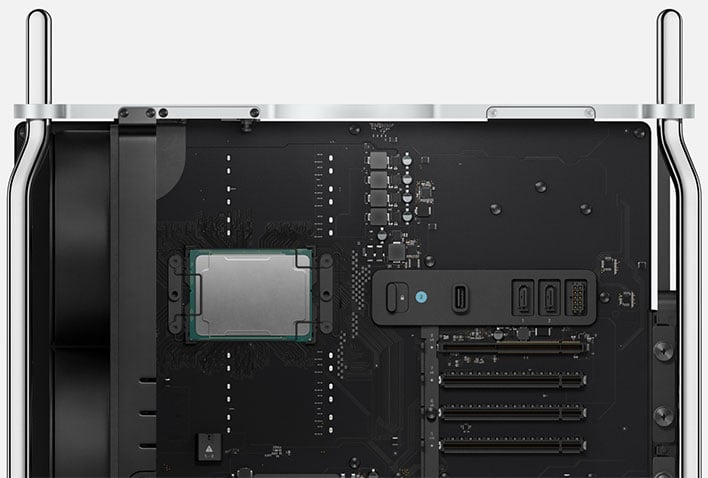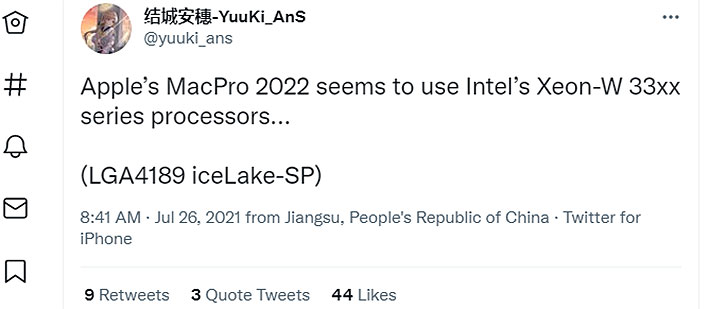Next-Gen Apple Mac Pro Can't Quit Intel Yet, 38-Core Ice Lake Xeons Rumored

Apple is eager to leave Intel behind as the supplier of CPUs for its Mac lineup, but bear in mind that this transition to using Arm-based silicon based on custom home brewed designs in place of Intel's x86 CPUs is not an overnight thing—Apple last year said it would take a couple of years to complete the transition. As such, rumors of a next-gen Mac Pro powered by another Xeon processor are at least plausible.
Let's take a step back for a moment. Apple's pending wholesale switch to custom Arm designs is a seismic shift of sorts. The partnership between Apple and Intel dates back to 2006, when the former moved away from PowerPC hardware to the latter's x86 Core processors. But going forward, Apple wants to rely on its own designs, in a move that CEO Tim Cook called a "huge leap forward for the Mac."
The transition has already begun. Apple has injected its custom M1 processor into a few different products, including certain iPad Pro, MacBook Air and Pro, iMac, and Mac mini models. We reviewed the M1-based Mac mini, but what we said all along is that it will be interesting to see how this plays out within Apple's Mac Pro and iMac Pro systems, which are currently powered by Xeon hardware.
A prominent leaker with a favorable track record suggests that Apple's upcoming Mac Pro refresh for 2022 will stick with Intel silicon, and specifically its upcoming Ice Lake-SP Xeon W-3300 series for workstations. Rumor has it these CPUs will be offered with up to 38 cores and 76 threads, clocked at up 4GHz and with 57MB of L3 cache.
This would result in a huge performance uplift, depending on the task. Apple's current-generation Mac Pro lineup tops out at 28 cores and 56 threads, clocked at 2.5GHz to 4.4GHz and 66.5MB of L3 cache. It also supports up to 1.5TB of DDR4-2933 ECC memory in a six-channel configuration.
Now here's the big question mark—assuming the rumor is accurate, will the 2022 model Mac Pros run exclusively on Intel hardware, or will Apple concurrently release a version based on its own silicon? We don't have an answer to that question, but it is also rumored that the Mac Pro will eventually be offered with 20-core and 40-core SoCs codenamed Jade.
These are said to be hybrid designs—the former with 16 high performance cores and 4 power efficient cores, and the latter with 32 high performance cores and 8 efficiency cores. Whenever the transition within the Mac Pro lineup happens, it will be interesting to see how performance stacks up. Time will tell.


